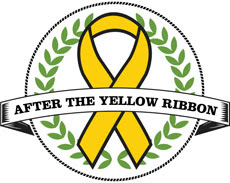I hesitate even to start writing this blog post, anticipating that I will save the draft and leave it unfinished for an embarrassingly ironic amount of time.
However, I have at least started it!
On Monday, I had my final one-on-one meeting with my supervisor here at North UMC, Kevin Armstrong. He had completed my final evaluation for the field ed office, so we went over that. I deeply appreciated Kevin's approach to the evaluation because he took it seriously and used it as an opportunity both to affirm and encourage me, as well as to call me out on shortcomings and things that need improvement.
One of the big things he pointed out to me was my tendency to procrastinate on unpleasant tasks, especially administrative tasks. This was not news to me, but especially since college, procrastination has become a talent of mine, so I've never really been called out on it before.
I'm dead serious about procrastination being a talent. I like to tell the story of the time my freshman year of college when I had two final papers due on the same day at 9:00 a.m. I started the first one (a 14-page paper) the day before at noon—and when I say "started," I do mean, "got books from the library and began my research." I finished that paper around 6:00 p.m., headed back to my dorm, stopped off for dinner along the way, chatted with a few friends, and by about 7:30 p.m. was stationed in the common room with a stack of physics books to start on a 20-page paper. Yes, I said a 20-page paper on physics. This included one book in French. I finished that paper around 4:30 a.m., slept for a few hours, got up, checked both papers briefly for typos, and turned them in.
I got As on both papers.
This story was repeated, though usually in less dramatic fashion, throughout my undergraduate career. I have yet to suffer serious consequences for procrastination, though I haven't been able to pull off As in the same way since starting graduate school, so there has been a little pushback for me in seminary.
Anyway. In going over our evaluation, Kevin pointed out that he's heard the phrase "I really ought to get on that" cross my lips many times this summer, and he's absolutely right. I should have a lot more written on my evangelism directed study than I do, and a few things got wrapped up this week that probably could have been done earlier.
I realized that the things on which I most regularly procrastinate (other than schoolwork) generally fall into 2 categories: simple but irritating tasks such as changing the address on my driver's license (which I just did after meaning to do so for about 2 years) and big tasks about which I am excited but which I fear I am not going to complete to my satisfaction.
My evangelism directed study falls into the latter category. I have enjoyed doing the reading, conversing and thinking related to that course way more than I ever anticipated. I think that once I get the paper written, it will be something of which I can be proud. And yet, I really only have a few pages on paper. Heck, writing this blog right now is really just a way of putting off working on it.
What Kevin said to me about procrastination and about administrative tasks in general is this: the main reason he came down on me in that area is that he knows I'm perfectly capable of doing that sort of work. Even I know that's true. I have great attention to detail, and if I'm convinced an administrative task is worth my time, I can rock its socks off. I think it's a combination of that—being convinced that it is worth my time—and being convinced that I am, in fact, capable of completing the task well. And maybe getting over my paralyzing fear of the phone.
 Registration is now open for After the Yellow Ribbon, an event coming up in November at Duke Divinity School, sponsored by the student group Milites Christi. The conference will include a performance by and conversation with artist Derek Webb (that's the part for which I'm responsible). To learn more about the event, click here, and check out the awesome video below—Stanley Hauerwas on moral fragmentation and war.
Registration is now open for After the Yellow Ribbon, an event coming up in November at Duke Divinity School, sponsored by the student group Milites Christi. The conference will include a performance by and conversation with artist Derek Webb (that's the part for which I'm responsible). To learn more about the event, click here, and check out the awesome video below—Stanley Hauerwas on moral fragmentation and war.



